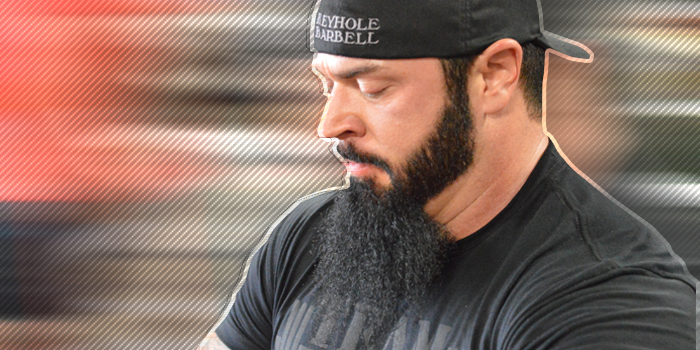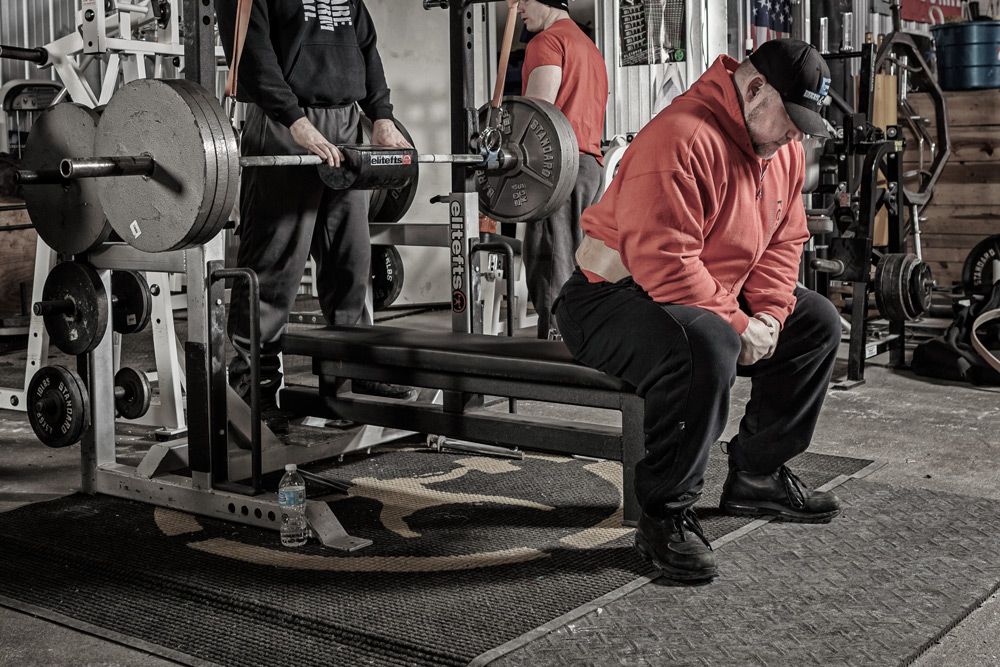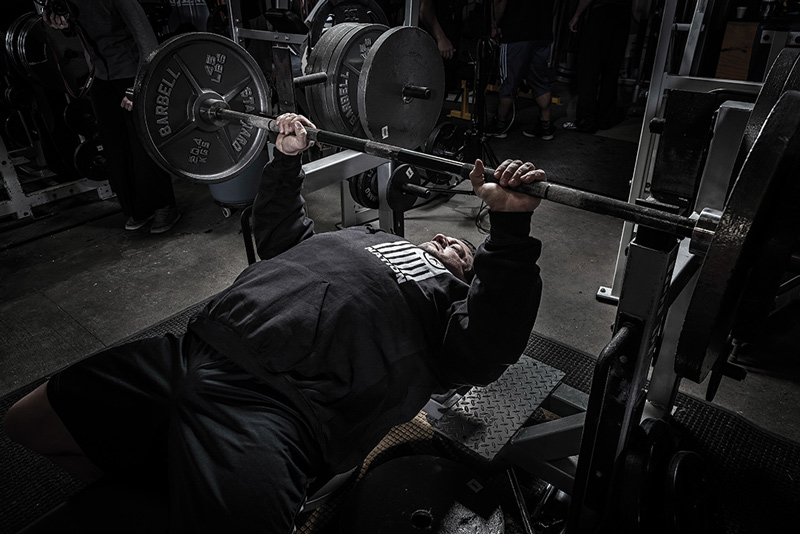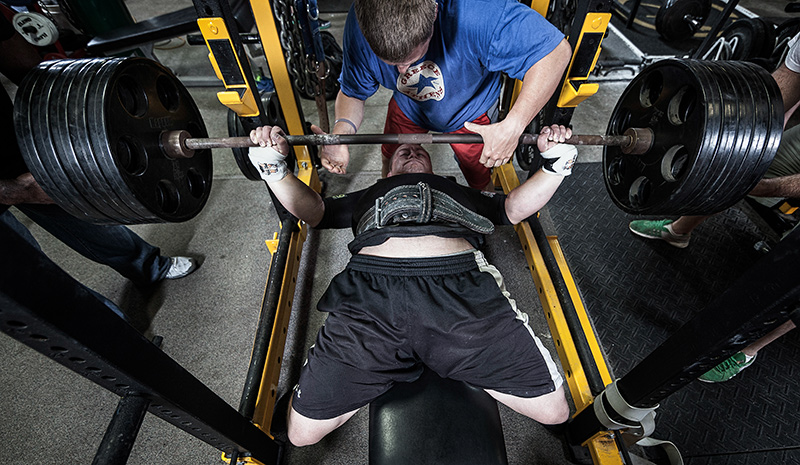
I know my readers. I know you. Maybe not as well as your mother knows you, and maybe not in the biblical sense (well, maybe some of you), but I know you.
I know your struggles.
You lift. You probably look like you lift. When people come up to you in line at Target, because they see you have muscles, and they ask "hey, how much can you lift?" I know what they mean.
They do not care about your deadlift.
Nope. And not a single one of those motherfuckers wants to hear about your squat.
You can tell them all about that hip-crease and the top surface of your knee and how other fools don't even know about hitting depth like you do and they will nod their heads, but their hearts will be somewhere else.
They want to know how much you can bench press. That's right, every single normal, non-lifting person on this planet wants just one piece of information from you, once they notice you're jacked. They want to know how much you can bench press. That's it! I mean, why the hell else would you even want to have muscles if not to bench press more weight than anyone else? Right?
Here's the rub: you can't tell them the truth. This comes back to the reason they are asking the question. I've been answering it for going on twenty years and believe me when I tell you: no matter how strong you are, you are nowhere near as strong as someone they know, and they want to tell you all about it.
Their uncle or brother or some kid they went to school with repped your best bench press all day long when he was just a youngster. I've heard of guys hitting 650 pounds raw in high school.
So, how do you handle this dilemma? You have two choices. Either you deal with some wiener shitting all over your hard work with fables about mighty men you'll never see in real life, or just fight fire with fire and make up a ridiculous fucking lie.
I usually start by telling them I bench 1000 pounds. This sets the bullshit bar pretty high. It takes a special kind of person to tell you they know someone who benches more than 1000 pounds. Usually just giving that answer will take the wind right out of their sails and ruin whatever story they were going to tell. This makes me really happy.
I will go on about how I was in the Olympics and on television and everything, but what I won't have to do is listen to any bullshit about how my bench is pretty good, but their cousin, Jimbo Martinez, would have crushed my dreams in his prime.
That bit of advice is my segue, smooth as a baby's backside, into this article about fixing your bench press. For that pearl, you are welcome.
Since this was another popular choice on my facebook poll for article topics, I am going to go ahead and outline some of the things which will have the biggest impact on your bench press performance, specifically, your strength off the chest.
Keep in mind, however, that no matter how big your bench gets, the average dickhead in Starbucks is still going to know at least one person who would fucking humiliate you under a barbell. So when you are asked how much you bench: you lie. You always lie.
Addressing Weakness Off The Chest
Technical Flaw Correction
First thing first, technique is more important than any other single factor for performance. You can be the most consistent person in the world, get all the sleep you could ever need, knock your nutrition game out of the ballpark every day of the week, but if you have shit technique, you're probably still going to suck.
Having a hard time swallowing that?
Try benching with your hands four inches apart. How much do you think you can press like that? Think you'll be pretty strong off the chest? Not very likely.
I doubt that is what you are doing, but I've seen lifters with technical flaws almost as glaring as that, who are more concerned with what they should change about their assistance work or program than what needs to be corrected with their technique.
Like I said, and I cannot overstate this: first thing's first. Make sure you've figured out and mastered the most advantageous pressing technique for your body and your leverages before you sweat the small shit. And everything else I am going to outline in this article is small shit when compared to that. I realize this doesn't make what's coming sound very sexy, (and that's why most bench press articles read something like "Increase Your Lockout With Board Press," or some similar bullshit,) but it's the truth. Most of the time when a lifter comes to me who is weak off the chest or weak at lockout, the issue is technical in nature and can be corrected in a single session of coaching.
With that said, I'm not going to go into great detail about how to troubleshoot and make technical corrections for the bench press. There are myriad possible problems, at least as many solutions and, quite frankly, it's very difficult to learn these things by simply reading about them. Even with video demonstration for my online clients it is a task for me to catch, and for them to learn to correct one technical issue.
Imagine someone trying to teach you how to give a haircut over text message. You might get the general idea, but the subtleties that make the haircut either good or bad are very visual. It's kind of like that. I will touch on some important points, though. (For lifting, not haircuts.)
Your best bet is to work with an experienced coach and let them help you determine the optimal technique for you as an individual lifter. In this case we are talking about bench press, but the same is true for all three lifts.
I can tell you that the single biggest technical issue I see effecting strength off the chest is "caving" during the eccentric phase of the lift. Rather that fighting to bring the sternum up during the bar's descent, the lifter will lose tension in lats and upper back, causing a loss of thoracic extension, which allows the chest to "cave" or flatten out, scapula begin to protract, and its a done deal from there.
This is usually a purely technical issue, because most of the time the lifter is not aware of it. However, the lifter can be aware and consciously try to correct by "chesting up" to meet the bar, driving the feet to roll themselves up onto the traps, like they should, and still be too weak in the lats and upper back to get the job done. This is less common, but in that case, corrective upper back and lat work will help. I'll address that more in the next section.
That is just one example of a technical problem that can cause weakness off the chest.
There are a wealth of technique instruction videos from Dave and many others on the site available to you. These are a great place to start and a solid review of the basics of proper bench press technique is never a bad idea, even for advanced lifters. You might catch something you've been forgetting. I will outline some factors which are, in my opinion, inviolable.
- Your shoulder blades need to remain retracted and depressed, throughout the entire movement, including racking and unracking.
- Your feet should be set in a position that puts your knees lower than your butt. This will help keep it on the bench.
- Your feet should be actively driving the top of your traps into the bench the entire time the bar is in play.
- Your elbows should be directly below the bar when it makes contact with your torso.
- As the bar descends, you should be trying to "meet it half way" by using your lats to turn your sternum up and elevate the touch point. This will help with tightness and elbow tracking.
Assistance Exercise Selection
Once you are confident that all technical issues have been squared away, the next step is to address the appropriate assistance exercise selection for your specific needs.
Lifters who are weak off the chest for reasons other than technique are usually so because of the obvious. Their pecs and deltoids are disproportionately weak compared to their triceps. Common sense would dictate that direct work for these two areas would help the problem a good deal, and so it does. In my experience, assistance exercises which are mechanically similar to the movement they are intended to assist seem to provide the most carry over. This is especially true for correcting weakness in a given portion of a lift. For that reason, Mechanically Similar Movements (MSM) are an integral part of the assistance protocols of my 5thSet methodology.
My two favorite MSM's for weakness off the chest are:
Buffalo Bar Press — This exercise is great for developing pec and deltoid mass when employed as a hypertrophy movement. It also works very well as a means to improve starting strength off the chest when a lower rep, strength protocol is used.
Long Pauses, One-Inch from Touching — These are an excellent choice for lifters who seem to have a nice "pop" off the chest, followed by sudden death. They help to improve acceleration off the chest, and are also a decent choice as a hypertrophy movement.
Finally, as I mentioned above, it is possible to have issues in the bottom half of the bench press range of motion which are being caused by lat or upper back weakness, or both.
If a lifter fails near the chest because they aren't strong enough to keep their shoulder blades back and down, this can be corrected by prescribing specific work for the lats and the muscles of the upper back.
Symptoms to look for are:
- One or both shoulder blades slip out when the lifter attempts to begin the concentric portion of the movement.
- The lifter is unable to keep the sternum high and flattens out when the concentric portion of the movement begins.
- The lifter is unable to maintain control of bar placement or elbow tracking. Bar placement is inconsistent and unstable.
RECENT: Swede's Diet Strategies
Lat and upper back work should be a priority for a lifter suffering from any of these symptoms. Really, lat and upper back work should always be a priority, for every lifter, but these symptoms suggest that they have not been enough of a priority to that point.
My favorite choices for upper back and lat development are:
- Barbell Rows
- Pull ups/Chins
- Barbell Shrugs
- Face Pulls
- Dumbbell Rows w/Stretch
- Dumbbell Shrugs w/Stretch
For dumbbell rows and shrugs, you can see I noted that I do them with a stretch. I perform two reps and then allow my lats or traps to stretch as far as they will and hang for two seconds before blasting the dumbbell back up for two more reps and then stretching again at the bottom. I perform four sets of each exercise, in the 15-20 rep range, in the same workout.
Second Pressing Day
5thSetters get the added benefit of a second pressing day, where basically an MSM becomes the main lift of that day. It should be obvious how this could benefit a presser who is weak off the chest.
By selecting an MSM geared toward their weak areas, like a wide grip bench press for very high reps, a second pressing day prioritizes the development of those lagging areas. I've never seen a lifter run 5thSet for any decent length of time and be weak off the chest and I'm thinking that's a big part of the reason.
Makes sense, right?
It's worth mentioning that wide grip presses for very high reps have improved my shoulder stability more than anything else I've tried over the years.
Hopefully you can take what you've learned here and use it to fix what ails you. If you don't have any of the problems I've been talking about, maybe you can help someone who does. At the very least, when someone asks you how much you can bench press you will know how to handle it.
If there is a topic you'd like to hear me go on about at length, feel free to leave a comment suggesting it below.














In case you might be wondering Swede, I have a 1200'lb raw bench.
That didn't go over so well...